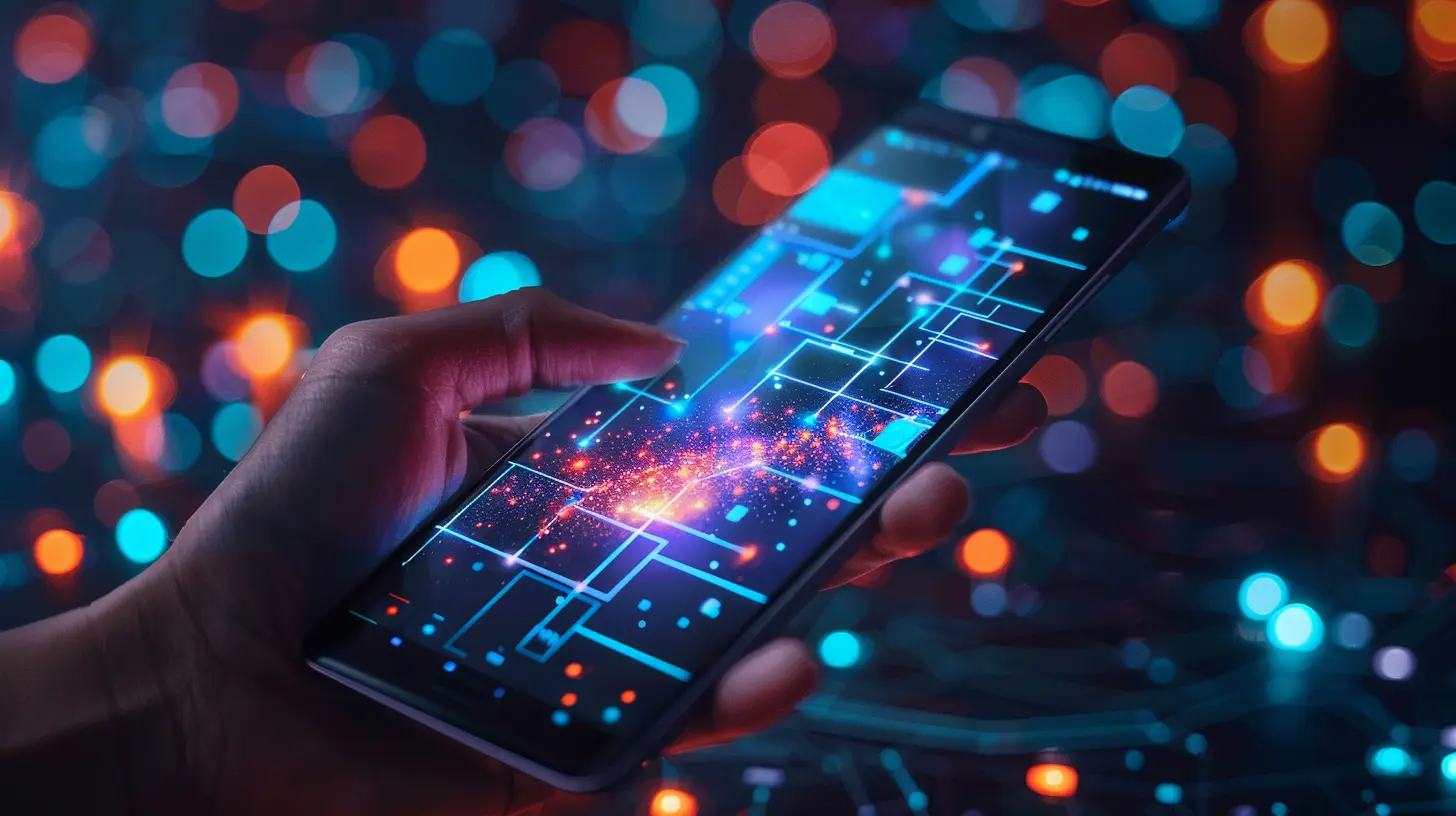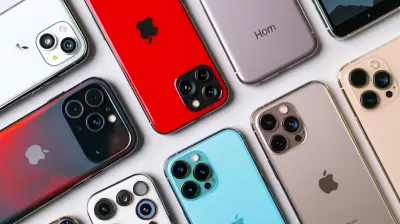The Role of AI in Shaping the Future of Mobile Devices
21 October 2025
Mobile devices have radically changed the way we interact with the world. From ordering food to managing our finances, we carry the power of supercomputers in our pockets. But the next big leap isn’t about faster processors or sharper screens—it’s about intelligence. Artificial Intelligence (AI), once the stuff of sci-fi, is now the beating heart of mobile evolution.
So, what does that mean for you and your everyday smartphone? Let's dive deep into how AI is not just enhancing mobile devices but redefining their role in our lives.
AI and Mobile Tech: A Love Story in the Making
Let’s face it—our phones are getting smarter. They can recognize faces, predict your next text message, suggest the quickest route home, and even organize your gallery without you lifting a finger. That’s AI in action.But this isn’t just about cool features or flashy gimmicks. It’s about creating a seamless, intuitive, and personalized experience that adapts to how we live. AI is quickly becoming the silent engine that drives your mobile device to think with you, and sometimes for you.
How AI is Changing the Way Our Phones Work
Let’s break it down a bit. You’ve probably heard terms like machine learning, neural networks, or natural language processing thrown around. Sounds complicated, right? But at its core, these are just fancy ways to describe how your phone learns from you and improves over time.Here's how AI is making waves in the mobile world:
1. Personalized User Experience
Ever wonder how your phone always seems to know what you need before you do? That’s not magic—it’s machine learning. It studies your habits, preferences, and behaviors. Over time, it figures out when you usually call your mom, or what kind of news you like to read in the morning.Your home screen starts to show apps you actually use. Notifications are smarter. Your phone evolves to suit you.
2. Smarter Virtual Assistants
Remember when Siri was just a glorified voice search? Those days are over.Now, thanks to natural language processing, assistants like Siri, Google Assistant, and Alexa can understand context and even sarcasm (well, sort of). They can book appointments, reply to messages, turn off your smart lights, or play the perfect playlist for your mood.
This isn’t just convenience; it’s about reducing friction in your digital life. Your assistant’s goal? To be your personal butler, always one step ahead.
3. Enhanced Mobile Photography
Let’s be real—most people choose a phone nowadays based on how good the camera is. And AI is the secret sauce behind those jaw-dropping photos.From scene recognition to advanced image stabilization, AI algorithms fine-tune every detail. Your camera now knows when it's daylight or night, whether you’re shooting food or a landscape, and how to fix red-eye automatically.
Portrait mode? That perfect bokeh effect where the background blurs just right? All powered by AI depth maps. Basically, your phone is turning into a pocket-sized DSLR—with a brain.
4. Battery Optimization and Performance Management
Nobody likes a phone that dies before dinner.AI helps manage energy consumption intelligently. It learns when you typically use your phone and which apps hog the most juice. Then, it adjusts background processes and system tasks to squeeze every drop out of your battery.
It's like having a fuel-efficient engine under your mobile hood—except it learns how you drive.
The Rise of On-Device AI: Speed Meets Privacy
Let’s talk about something super important—privacy. As AI becomes more advanced, there's a push to process data directly on your device rather than sending it to the cloud.This shift is called "on-device AI," and it’s a total game-changer.
First off, it’s faster. No need to wait for your phone to contact a server every time it needs to recognize a face or translate speech. Second, it’s safer. Your personal data stays on your phone, not floating around in cyberspace.
Think of it like having a mini AI brain right inside your device—it can think on the spot without phoning home for help.
AI-Powered Security: Your Phone, Your Fortress
Phones today aren't just communication tools—they're wallets, ID cards, and diaries. So, securing them is non-negotiable.AI is stepping up big time here:
- Facial Recognition: AI analyzes thousands of facial data points to unlock your phone instantly. Better yet, it adapts to changes—whether you grew a beard or wore glasses.
- Behavioral Biometrics: This one’s wild. AI tracks how you type, swipe, and even walk. If something seems off—say, a would-be thief trying to get in—it locks down your phone automatically.
- Spam Filters and Malware Detection: Machine learning helps your device recognize suspicious activity and stop it before you even notice.
With AI at the helm, your phone becomes more than just smart—it becomes secure.
The Future of Mobile Apps: Smarter Than Ever
AI isn’t just transforming the device—it’s also reinventing the apps we use every day.Think About These Scenarios:
- Health Apps: Your phone monitors your heart rate, sleep patterns, and daily activity to offer tailored health advice.- Finance Apps: AI-driven tools analyze your spending habits and help you budget like a pro.
- Language Apps: Tools like Duolingo now use AI to adapt lessons in real-time based on your learning style.
- Productivity Tools: From smart scheduling to auto-replies, AI helps you work not just faster—but smarter.
The bottom line? Mobile apps are no longer static tools. They’re living, breathing ecosystems that evolve with you.
AI in Wearables and IoT: Beyond the Phone
While smartphones are the main stage, the supporting cast of wearable tech is growing fast.Smartwatches, fitness bands, and even smart glasses are getting AI brains. They gather sensor data and make real-time decisions—like alerting you if your heart rate spikes or reminding you to move if you’ve been sitting too long.
And when these devices talk to your phone? You’ve got a connected AI network—intelligent, responsive, and always on.
What’s Next? The Big Predictions
We’ve already come a long way, but what’s on the horizon? Here are a few bold predictions:1. AI-Driven UI/UX
Expect interfaces that design themselves. Based on how you use your phone, menus could reorganize, fonts could change, and colors could adapt for optimal readability—even adjusting based on your mood.2. Hyper-Personalized AI Companions
We’ll see virtual assistants that feel less like tools and more like companions. ChatGPT on steroids—able to carry on meaningful conversations, remember past interactions, and even sense emotional tones.3. Real-Time AR and AI Synergy
Augmented reality (AR) plus AI is a match made in tech heaven. Imagine pointing your phone at a piece of furniture and having an AI assistant tell you if it matches your room’s aesthetic or whether that price is a good deal.4. AI and Edge Computing
With faster mobile hardware, we’ll see more AI tasks done at the "edge"—right on the device. That means quicker responses, better privacy, and enhanced user experiences without needing constant connectivity.The Challenges Ahead: Let’s Not Ignore Them
Okay, let’s pump the brakes for a second. With great power comes... well, you know the rest.AI in mobile devices raises some important concerns:
- Privacy: Who owns the data? How is it used? Transparency is key.
- Bias in AI Models: If an AI learns from biased data, it could make unfair or even dangerous decisions.
- Overdependency: Are we relying too much on AI, to the point where we’re losing basic decision-making skills?
These aren’t deal-breakers, but they are speed bumps on the road to a smarter future. It’s up to developers, companies, and yes—us users—to navigate them wisely.
Wrapping It Up: Where Do We Go From Here?
AI is no longer an add-on to mobile devices; it's the soul of the experience. From smarter assistants to adaptive user interfaces, from enhanced security to real-time personalization—AI is everywhere, working quietly behind the scenes.But perhaps the most exciting part? We’re just getting started.
The more AI learns, the more it reshapes what's possible with mobile tech. Your phone isn’t just a device anymore—it’s a partner. And as AI continues to evolve, our relationship with technology will become more intuitive, more human, and ultimately, more powerful.
So next time your phone suggests the perfect selfie settings or predicts your next text with eerie accuracy, remember—it’s not magic. It's AI, and it's only going to get better.
all images in this post were generated using AI tools
Category:
Mobile TechnologyAuthor:

Kira Sanders
Discussion
rate this article
1 comments
Martha Dillon
AI is revolutionizing mobile devices by enhancing user experience, optimizing performance, and enabling innovative features like voice recognition.
October 22, 2025 at 2:33 AM

Kira Sanders
Absolutely! AI is indeed transforming mobile devices, making them smarter and more intuitive for users.

